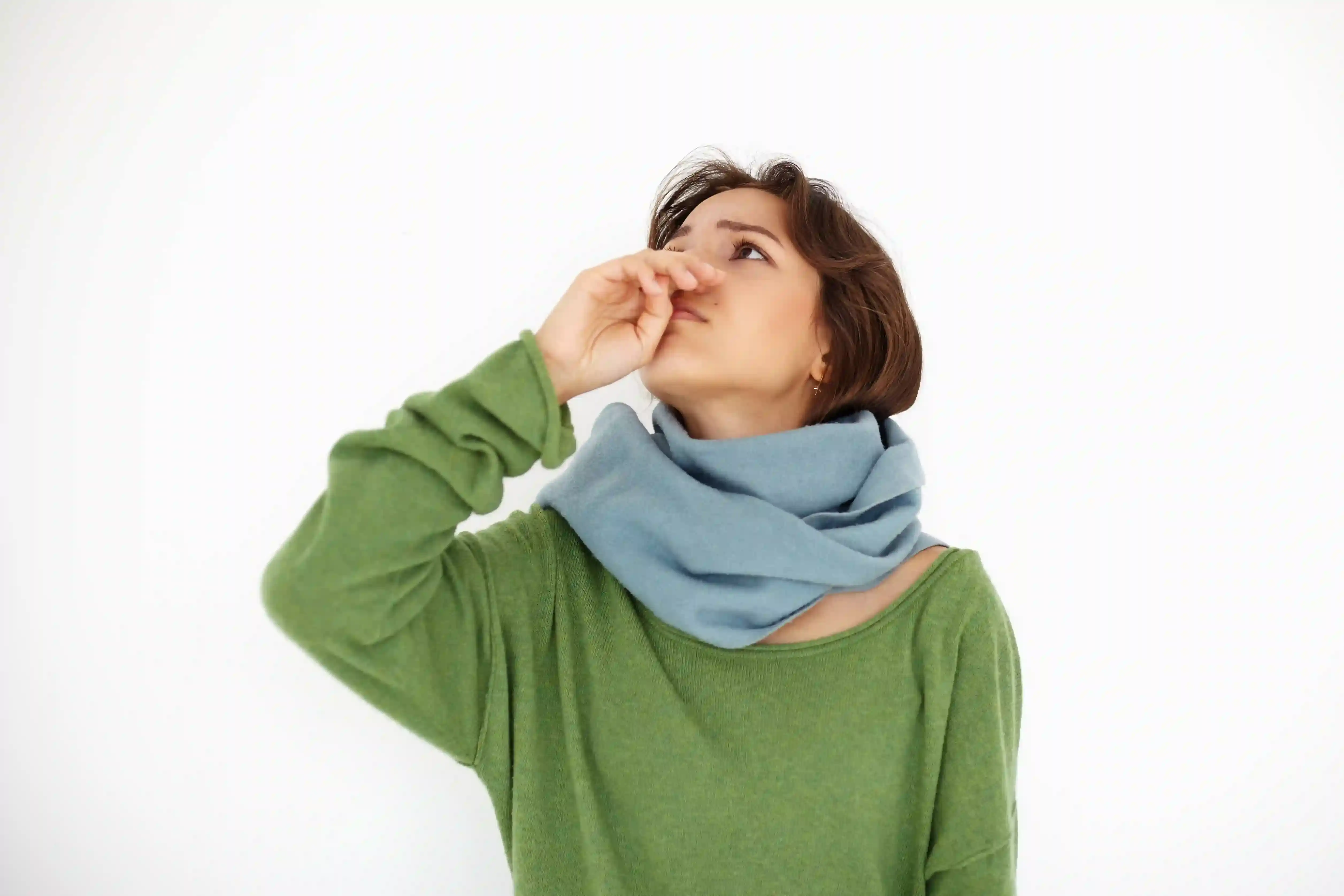Preventive Healthcare
What is Epistaxis: Causes, Treatment and Prevention

Table of Contents
What is epistaxis?
Epistaxis, or Nosebleeds, is a common occurrence that can be distressing and inconvenient for individuals affected. While they are generally not life-threatening, understanding the causes behind epistaxis plays a crucial role in managing and preventing their occurrence.
Causes of epistaxis
There are several reasons for nose bleeds. Some of them are discussed below.
Environmental Factors
Environmental factors are frequently associated with epistaxis and can include:
- Dry Air: Exposure to excessively dry air can lead to the drying out of nasal membranes, making them more prone to bleeding. This is particularly evident in arid climates or during colder seasons when indoor heating systems reduce humidity levels.
- Extreme Temperatures: Exposure to extreme temperatures, such as very cold or hot weather, can cause blood vessels in the nasal passages to constrict or expand rapidly. These changes can lead to minor bleeding in some individuals.
- Trauma and Injury: Physical trauma and injury are often cited as major nose bleeding causes. Some key factors include:
- Nose Picking: Engaging in the habit of picking or blowing the nose forcefully can irritate the nasal lining, leading to the development of small tears in the blood vessels. These tears may cause localized bleeding, resulting in a nosebleed.
- Facial Injuries: A direct hit to the face, such as through sports-related incidents, accidents, or assaults, can cause nasal bones to fracture or cause damage to the soft tissues, resulting in epistaxis.
- Medical Conditions: Certain underlying medical conditions can predispose individuals to epistaxis, and these include:
- Nasal Infections: Infections affecting the nasal passages, such as sinusitis or rhinitis, can lead to inflammation and irritation of the nasal lining. This inflammation weakens blood vessel walls, making them more susceptible to bleeding.
- Allergic Rhinitis: Individuals with allergies, particularly allergic rhinitis, commonly experience nasal congestion and persistent sneezing. The constant rubbing of the nose due to allergies may cause blood vessels to rupture and trigger epistaxis.
- Medications and Medical Treatments: Certain medications and medical treatments can also contribute to the occurrence of epistaxis:
- Anticoagulant Medications: Individuals taking anticoagulant medications to prevent blood clotting may be more prone to epistaxis, as these medications can interfere with the blood's ability to clot efficiently.
- Nasal Medications: Nasal sprays used to treat conditions like nasal congestion, allergies, or sinusitis may contain vasoconstrictors, which temporarily narrow the blood vessels. Long-term and excessive use of these medications can irritate the nasal lining and increase the risk of epistaxis.
Prevention of epistaxis
Before delving into preventative measures, it is crucial to comprehend the different causes of epistaxis. The most common causes include dry air, nasal trauma, sinus infections, allergies, and high blood pressure. Consequently, preventing epistaxis revolves around mitigating these contributing factors.
- Maintaining Moisture: One primary preventive measure is to maintain optimal nasal moisture. Dry air, especially in arid climates or heated environments, can cause nasal passages to become dry and prone to bleeding. To mitigate this, individuals should consider using a humidifier to add moisture to the air. Additionally, utilizing saline nasal sprays or applying petroleum jelly inside the nostrils can help retain moisture, minimizing the chances of epistaxis.
- Nasal Irritation and Trauma Prevention: Preventing epistaxis also involves avoiding nasal irritation and trauma. Individuals should refrain from picking their nose, as this can cause small injuries to the nasal lining, resulting in bleeding. Moreover, regularly trimming nails can decrease the likelihood of unintentional injuries. When participating in activities that may pose a risk to the nose, such as contact sports, using appropriate protective gear, such as a helmet or face mask, is crucial.
- Maintaining Blood Pressure: Bleeding from the nose can also be caused by high blood pressure. Maintaining proper blood pressure levels might be very important in preventing epistaxis. This may be accomplished by adopting a healthy lifestyle that includes regular exercise, a balanced diet, cutting back on salt intake, and stress management.
Treatment of epistaxis
Self-care Measures
In milder cases of epistaxis, self-care measures can often alleviate symptoms and promote healing. These measures include:
- Pinching the Nose: Gently pinching the soft part of the nose, just below the bridge, can help stop the bleeding by applying pressure to the blood vessels.
- Tilting Forward: Leaning forward slightly while pinching the nose can prevent blood from flowing into the throat and causing irritation or nausea.
Moisturizing the Nasal Passages
Dry air can contribute to epistaxis by causing the nasal membranes to become dry and easily irritated. Maintaining an optimal humidity level at home, using a humidifier, and applying a saline nasal spray can help keep the nasal passages moist, reducing the likelihood of epistaxis.
Nasal Packing
For recurrent or severe epistaxis, nasal packing may be required. This involves placing an absorbent material, such as gauze or a specialized nasal packing device, into the nasal cavity to apply direct pressure to the bleeding vessels and promote clot formation. Nasal packing should be performed by a healthcare professional.
Medications
Sometimes, doctors will prescribe medications to treat epistaxis. These include nasal antihistamines for people with underlying allergies or topical corticosteroids to lessen inflammation and crusting. But because they might have adverse effects, drugs should only be used under the supervision of a medical practitioner.
Book Blood Test
Conclusion
While self-care measures are often effective for mild epistaxis, persistent or severe cases may require medical attention. It is crucial to consult a healthcare professional to determine the appropriate treatment option based on the severity, frequency, and underlying cause of the epistaxis.
If you experience frequent epistaxis and are looking to get to the root cause of the problem, then visiting Metropolis Healthcare could be the right choice for you. Metropolis Healthcare Centre is a diagnostic centre that provides a comprehensive range of diagnostic tests to help identify any underlying medical conditions that could be causing epistaxis.




























